Home remedies 'no deterrent' against slugs and snails
- Published
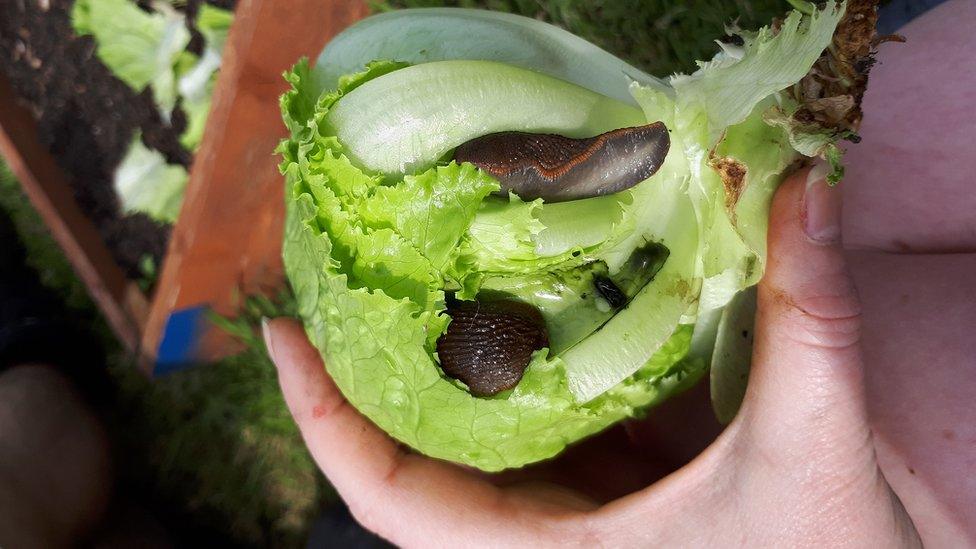
Slugs can be unwelcome guests
Home remedies used to deter slugs and snails from prized plants appear to have no scientific basis.
Using the likes of grit or egg shells to guard against slug attack did not reduce damage to lettuces in trials.
Five popular methods were tested over the summer by the Royal Horticultural Society.
Entomologist and lead researcher Dr Hayley Jones said gardeners could be wasting their time and money on home remedies for slug control.
"I'm not ruling them out yet, but it's not looking good," she said. "There's still no evidence that they work."
The study showed copper tape, sharp grit, pine bark, wool pellets or egg shells did not ward off slugs and snails.
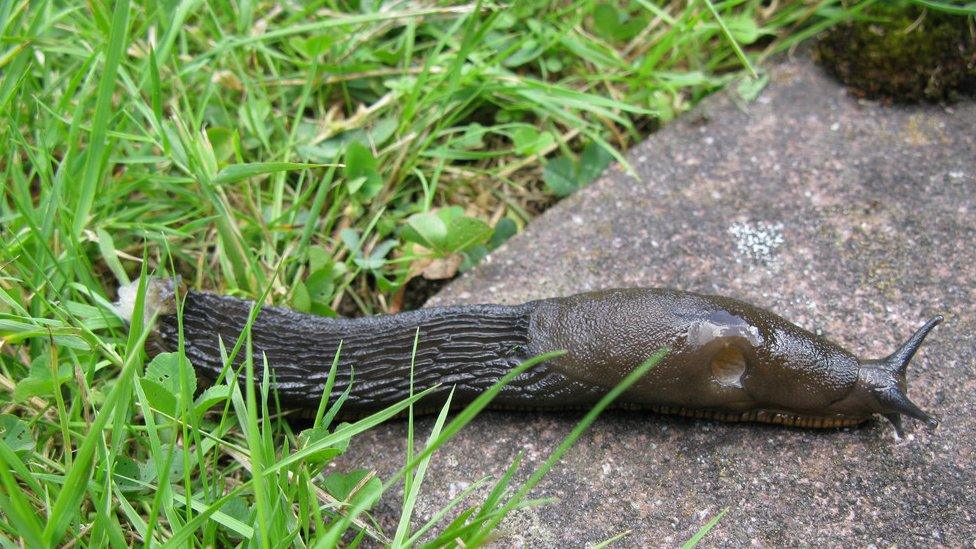
There are more than 40 types of slug in the UK
However, a layer of wool pellets or pine bark had benefits as a fertiliser and mulch, yielding a bigger crop.
And planting lettuces in pots rather than on the ground reduced slug damage, but also yield.
What's the advice?
It's thought sprinkling sharp grit and egg shells on plants as a barrier to deter slugs is ineffective, because the gastropods are covered in thick mucus, which acts as a protective shield.
Dr Jones said she was not surprised that home remedies appear ineffective, given that there are lots of slug species, with different biological properties.
"With the likes of egg shells, barks and mulch so far proving no discernable deterrent to slugs and snails we would suggest proven formulas like nematode biological control if the damage is just too much to bear," she said.
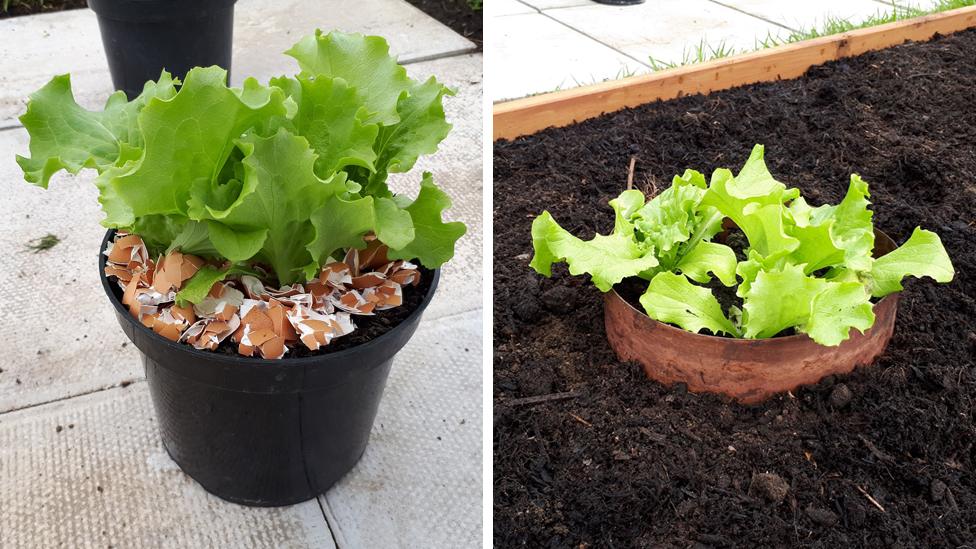
Egg shells and copper tape did not ward off slugs and snails

All about slugs and snails
Slugs and snails belong to a group called gastropods
There are more than 40 species of slug currently found in the UK, with only a small number of these considered pests
Not all slugs feed on vegetation; some eat fungi and a small number are carnivorous, feeding on the likes of earthworms
Slugs are preyed upon by the likes of hedgehogs, birds and toads
Symptoms of slug or snail attack include holes in leaves, stems, flowers and potato tubers; while seedlings can be killed
They can cause damage throughout the year, but seedlings and new growth on herbaceous plants in spring are most at risk.

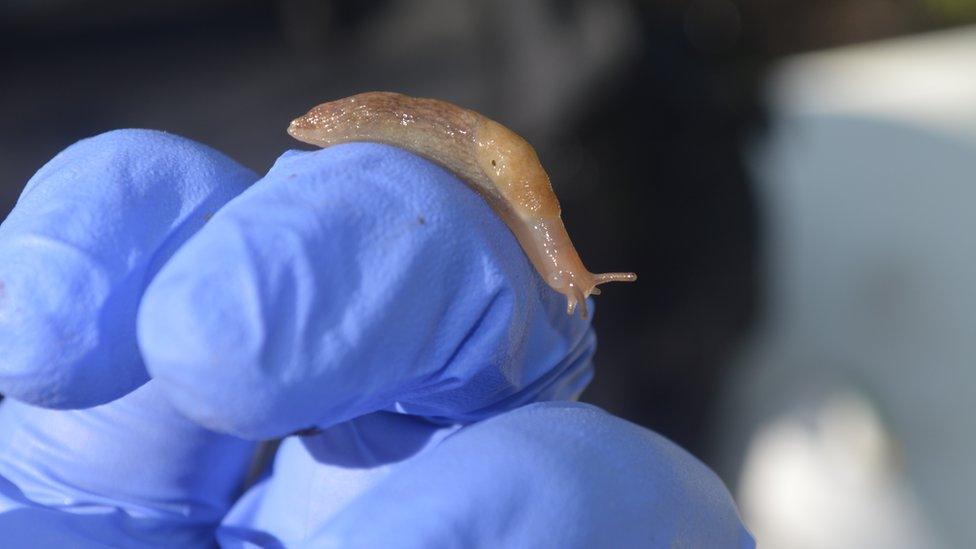
Deroceras reticulatum - aka the grey garden slug
Commercially available microscopic nematodes watered into the soil can infect slugs with bacteria that kill them. Non-chemical methods suggested by the RHS , externalinclude going out in the evening to hand-pick slugs then release them away from gardens.
One home remedy that has yet to be tested is beer. Some have advocated putting out a saucer of beer to tempt slugs to an early end.
The RHS plans to test the effectiveness of beer traps in the future.
What did the experiment show?
More than 100 lettuce plants were grown in pots and raised beds for six weeks. They were examined weekly for signs of damage and, at the end of the experiment, all the lettuces were harvested, weighed, and examined for signs of damage.
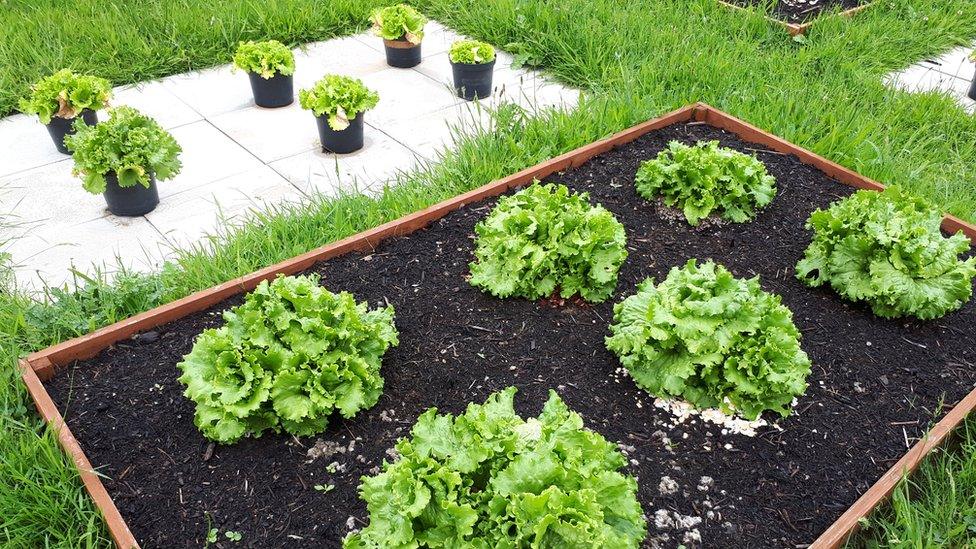
Scientific trials at the RHS research facility in Wisley, Surrey
Lettuces planted in the ground were found to be more susceptible to slug attack, with 5.7% eaten on average compared with 0.2% of those in pots.
The home remedies had no benefits in terms of the amount of slug and snail damage.
However, when the lettuces were dried and weighed, a layer of wool pellets or pine bark yielded a 50% bigger crop.
The two main gastropods identified in the experiment were the grey field slug and the common garden snail.
Follow Helen on Twitter, external.